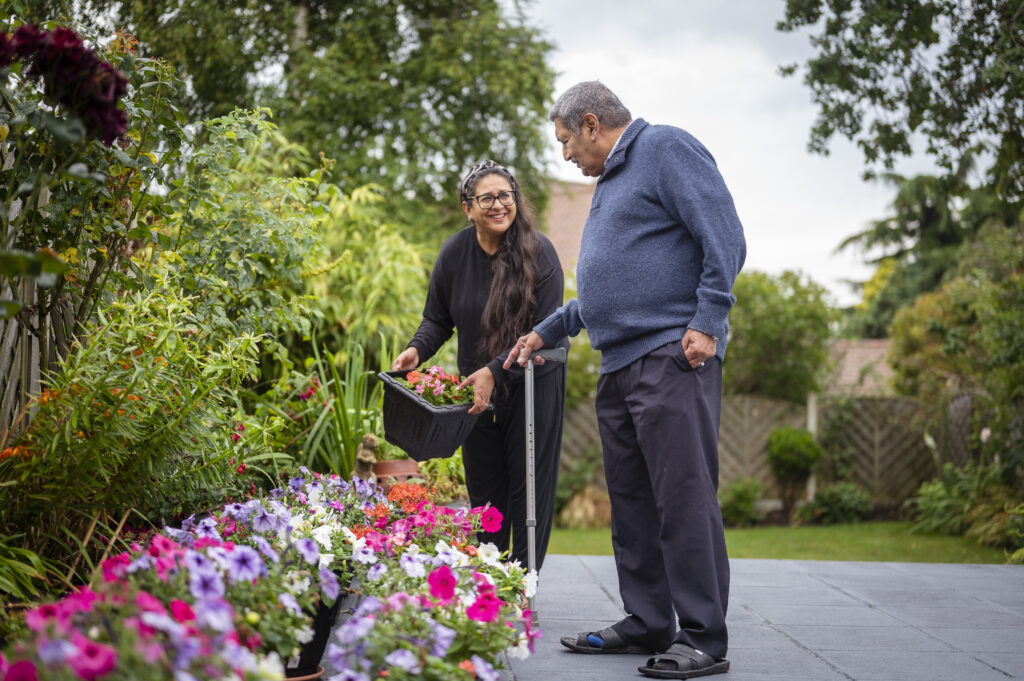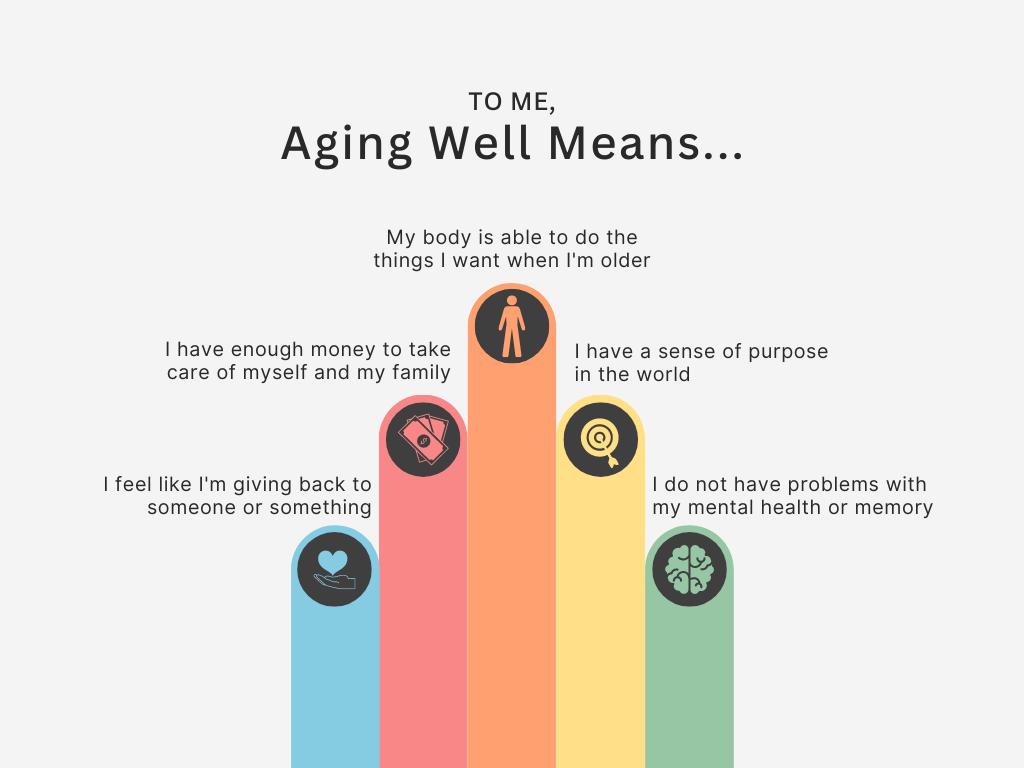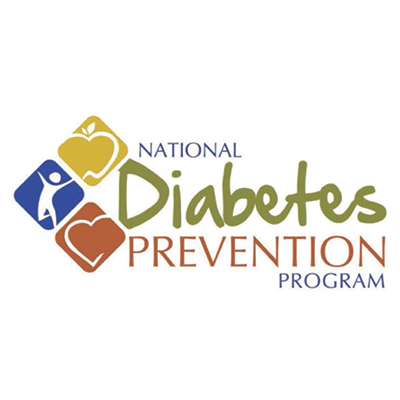
Age Well with WIHA
A newsletter from the Wisconsin Institute for Healthy Aging
Age Well with WIHA: March/April 2023
WIHA’s newsletter is published bi-monthly and sent by email. View the email newsletter online or read the full stories below. Don’t forget to subscribe!
In this Issue
Welcome to WIHA
Healthy communities filled with healthy people enjoying life to the fullest – that’s something we can all get behind! The Wisconsin Institute for Healthy Aging is here to help you.
WIHA is a non-profit organization. We work with local communities across the state to bring you programs and alert you to ways to age well. Our programs can help you prevent a fall, manage a health problem, be more physically active and more. What makes these programs special is that they have been researched and proven to help you stay healthy as you grow older.
Three Tips to a Healthier Spring
Spring is a great time to make health and wellness a priority. With the days getting longer and a little bit more green in your landscape, you might feel more motivated to make some changes to improve your health. Even small changes can produce big health benefits and boost your mood. Here are three tips for improving your well-being as the weather warms up:
Get moving: For people age 65 and older, 150 minutes a week of moderate-intensity activity is recommended. Not only is it good for your physical health, but it can also lift your mood. Walking is a great way to fit your exercise in – just 30 minutes a day, 5 days a week will do it. Learn more and find a physical activity program.
Get a good night’s sleep. Sleep is vitally important to good health at any age and has a positive affect on memory, weight management, mood and immune system. Older adults need about 7 to 9 hours each night. If that’s a challenge for you, there are things you can do to improve the amount and quality of your sleep including a conversation with your doctor. Learn more and find strategies for better sleep.
Stay connected. We all feel lonely or isolated now and then. But if you feel that way all or most of the time, you can take steps to increase your connections. Reach out to friends and family and make plans to get together. Check out the volunteer opportunities in your community. Adopt a pet. Get active in a community organization. Learn more and find ideas to create connections and purpose.

Anytime is a is a great time to help yourself to better health. Why not start this spring? Use these tips and more to stay well!
Aging Today. What Does it Mean to Age Well?
Aging well can mean different things to different people, but there are some universal themes that most agree on. What does aging well mean? WIHA surveyed over 700 individuals between the ages of 70 and 87 to find out what healthy aging meant to them.

Nearly 86% of people said that ‘aging well’ meant they could physically do the things they want to do when they’re older. For 76% of respondents, aging well meant 1) being surrounded by people they love (not lonely), 2) able to continue to learn new things and improve skills, and 3) having enough money to take care of themselves and their family.
Research has identified 8 Dimensions of Wellness that impact our perception of aging well. Here are three of them:
The other 4 dimensions of health not represented here are emotional health, environmental health, occupational health, and spiritual health. You can read more about those on the Age Well page.
To find out how well you’re aging, take our Healthy Aging Assessment. This assessment will help you see which areas you’re aging well in, and which you could make some changes in to help you age well.
WIHA offers 14 programs to help you develop skills to manage your health conditions and age well. Read more about the programs or find a workshop near you.
What does healthy aging mean to you?
We’d love to learn more about you and how you feel about growing older. Click the button below and tell us what healthy aging means to you.
Are You at Risk for a Fall?
Did you know that 1 in 4 people over the age of 65 has a fall each year? Wisconsin has the highest death rate due to falls in this age group in the entire country. The good news is that falls are not a normal part of aging – they can be prevented!
Preventing a fall starts with knowing your risk. If you’re not sure, ask your doctor for a falls risk assessment at your next visit. You can take a free self-assessment from the National Council on Aging at the link below.

Knowledge is power. Take the quiz below and test your knowledge of falls. Then, learn more about Stepping On – a program to show you how to reduce your falls risk.
5 Tips to Get Active this Spring

Help Us Help You
We want your opinion! We’re looking for input on a new project and would like to know what you think.
The first ten people to sign up and participate in this 1-hour online Zoom meeting will receive a Walgreens or CVS gift card.
Space is limited. Sign up below with your email address:
Featured Program: Living Well
Helping you take control of your health by giving you the tools to manage your chronic condition
Chronic health problems such as arthritis, cancer, heart disease, high blood pressure, diabetes, high cholesterol, obesity, or other conditions are common as we get older. In fact, nearly 95% percent of older adults have at least one chronic condition, and nearly 80% of have two or more. If an ongoing health problem is keeping you from activities that you enjoy, you are not alone.
Living Well with Chronic Conditions (or Living Well) is a fun, interactive, 6-session workshop that helps you take charge, feel better, and improve your health. Living Well was developed at Stanford University and is evidenced-based to reduce emergency department visits by 27%.
Participants sing the praises of the program.

“By us sharing our experiences and being able to connect participants with health care providers that have helped us in the past. We are always sharing with others and helping get other people involved in these programs because we know it can help them”
Jim Coffman
Vilas County
If you have a chronic condition, learn strategies to better manage it.
Diabetes Management
According to the Center for Disease Control and Prevention (CDC), 1 in 10 adults in the United States have diabetes. Diabetes affects how an individual’s body turns food into energy. Most of the food that we eat is broken down into sugar and enters our bloodstream. Insulin, which is a hormone made in the pancreas, picks up the sugar and helps bring it to the body’s cells to use for energy. If there’s not enough insulin, then there’s a problem. There are several distinct types of diabetes. Type 1 diabetes is caused when and the body cannot make insulin. This is most often seen in children and young adults. According to the CDC, about 5% of people with diabetes have type 1 diabetes. Type 2 diabetes occurs when the body does not make enough insulin or can’t use insulin well. You can get type 2 diabetes at any age. However, you have higher risk if you are overweight, have a family history of diabetes, or are not physically active. Other types of diabetes include Gestational Diabetes, which some women develop during pregnancy, and diabetes from other causes. According to the CDC, 1 in 3 adults has prediabetes. Individuals diagnosed with prediabetes have blood sugar levels that are higher than normal but not high enough to be diagnosed with diabetes.

Prediabetes is reversible. The Diabetes Prevention Program is for adults who have prediabetes and want to learn what steps to take to avoid a diabetes diagnosis. The year-long curriculum is led by a trained lifestyle coach and has lessons and resources to help you make manageable, healthy changes. Read more about the Diabetes Prevention Program on WIHA’s website.

Healthy Living with Diabetes is a high-level evidenced-based community workshop for adult who have diabetes or prediabetes who want to learn how to manage or avoid diabetes. Stanford University developed the workshop which meets for 2.5 hours, once a week, for six weeks. Healthy Living with Diabetes is led by two trained program leaders in a small group setting and is offered in both English and Spanish. Participants learn about healthy eating, physical activity, communicating with health care professionals, goal setting, and problem-solving. More information and workshops can be found on the WIHA’s Healthy Living with Diabetes website.

The Diabetes Self-Management Education and Support Program (DSMES) is a program for individuals diagnosed with type 1 or type 2 diabetes. Participants work with a diabetes care and education specialist, usually in a clinic or hospital setting. The DSMES program assists individuals in developing a management plan that fits the individual’s health beliefs, cultural needs, knowledge, physical abilities, and other challenges of managing diabetes. Diabetes care and education specialists can also help explain how to use monitoring devices, and insulin pens or pumps. To learn more about DSMES visit WIHA’s Healthy Living with Diabetes website.
If you or a loved one is dealing with diabetes, these programs may be an effective way to manage this condition.
Find a Workshop
WIHA offers 14 different programs across the state to help you improve your knowledge and skills about caring for yourself as you age. Most programs are offered at low or no cost and are available either in-person, over the phone, or online. To find a program near you:
Enjoyed the newsletter? Subscribe today!
